Search
Did you mean: Enki?
Remove Ads
Advertisement
Search Results

Definition
Mythology
Myths are a part of every culture in the world and are used to explain natural phenomena, where a people came from and how their civilization developed, and why things happen as they do. At their most basic level, myths comfort by giving...
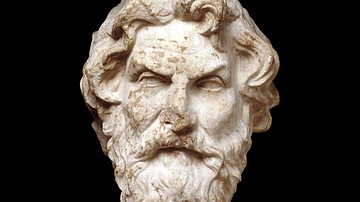
Definition
Philosophy
The word philosophy comes from the Greek philo (love) and sophia (wisdom) and so is literally defined as “the love of wisdom”. More broadly understood, it is the study of the most basic and profound matters of human existence. Philosophical...
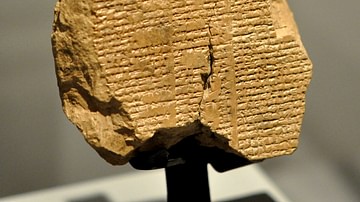
Definition
Mesopotamian Literature
Ancient Mesopotamian literature developed c. 2600 BCE after scribes, who had formerly been record keepers, began composing original works in the region of Sumer. The Sumerians invented writing c. 3500 BCE, refined the script c. 3200 BCE...

Video
The Epic of Gilgamesh - An Ancient Tale of a King Searching for Immortality
Gilgamesh is a semi-mythical king of Uruk, an ancient city of Mesopotamia, and is best known as the star of the first epic poem ever written, the Epic of Gilgamesh, where he searches for immortality after the death of his friend Enkidu. Even...

Video
Tablet V of the Epic of Gilgamesh
The newly discovered, partially broken, tablet V of the Epic of Gilgamesh: "the episode of the journey of Gilgamesh and Enkidu." The tablet dates back to the old Babylonian period, 2003-1595 BCE. From Mesopotamia, Iraq. The Sulaymaniyah...
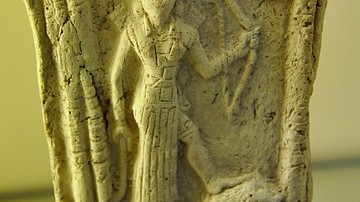
Definition
Ishtar
Ishtar (Inanna in Sumerian sources) is a primary Mesopotamian goddess closely associated with love and war. This powerful Mesopotamian goddess is the first known deity for which we have written evidence. While largely unknown in the modern...
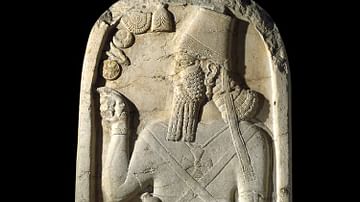
Definition
Anu
Anu (also known as An) is an early Mesopotamian sky god who was later viewed as the Father of the Gods and ruler of the heavens, a position which then passed to his son Enlil. He is the son of the couple Anshar and Kishar (heaven and earth...
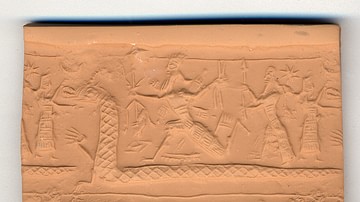
Definition
Tiamat
Tiamat is the Mesopotamian goddess associated with primordial chaos and the salt sea best known from the Babylonian epic Enuma Elish. In all versions of the myth, following the original, Tiamat always symbolizes the forces of chaos, which...
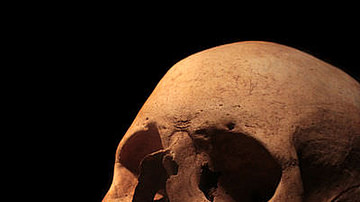
Definition
Ghosts in the Ancient World
A belief in an afterlife was central to every major civilization of the ancient world and this encouraged the recognition of the reality of ghosts as the spirits of the departed who, for one reason or another, either returned from the realm...
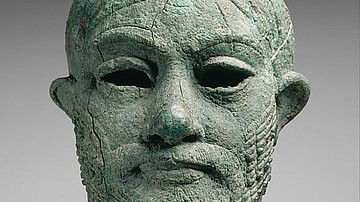
Definition
Mesopotamian Naru Literature
Mesopotamian Naru Literature was a literary genre, first appearing around the 2nd millennium BCE, which featured a famous person (usually a king) from history as the main character in a story that most often concerned humanity's relationship...